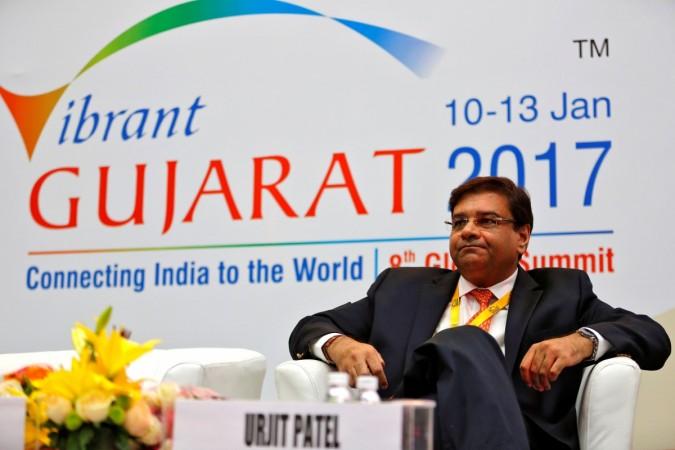
Urjit Patel, governor of Reserve Bank of India (RBI), sounded a note of caution over rising government debt, days before the Modi government is set to present Budget 2017. The central bank chief's comments on high interest rate subsidy were also significant in the context of sops announced by Prime Minister Narendra Modi on December 31, 2016.
"Second, since 2013, the central government has successfully embarked on a fiscal consolidation path. Even then, our general government deficit (that is borrowing by the centre and states combined) is, according to IMF data, amongst the highest in the group of G-20 countries," Patel said.
The cost of sops announced by Modi was estimated at Rs 3,500 crore per annum by a State Bank of India economist.
Read: India lobbied Moody's for ratings upgrade
He was speaking at a seminar on "Business Potential of International Financial Services Centre in India" organised by GIFT, India's first International Financial Services Centre (IFSC), in Gandhinagar on Wednesday.
Patel added that such high levels of debt as a percentage of the country's GDP do not help to improve India's sovereign upgrade.
In a veiled reference to Modi's announcement of interest subvention to those seeking home loans (eligible under the Pradhan Mantri Awas Yojana), Patel said that such measures, though good in intent, adversely affect "optimal allocation of financial resources and increases moral hazard."
It may be recalled that the central bank's role has come under a cloud over the demonetisation decision, with some analysts calling it the erosion of the bank's credibility.
He also spoke about the RBI's target of retail inflation at 4 percent. The government is set to release the provisional data for December consumer (retail) inflation later in the day; the rate was 3.63 percent in November 2016.
Here are the highlights of the speech delivered by Patel:
The RBI now has a notified target for inflation of 4 percent, which a six-member Monetary Policy Committee has been enjoined and tasked to realise. We have to ensure that this objective is secured on a durable basis given the progress already made.
Low and stable inflation is an essential prerequisite for having a meaningful interest rate structure or regime whereby decisions by savers and investors help to achieve maximal allocative efficiency in an economy whose investment rate has to increase for better growth outcomes.
In addition, while some government guarantees and limited subventions can help, steep interest rate subventions and large credit guarantees also impede optimal allocation of financial resources and increases moral hazard. The mandates for these have to be narrow, and thus perforce be deployed judiciously, within a regulatory framework, which RBI has suggested.
Since 2013, the central government has successfully embarked on a fiscal consolidation path. Even then, our general government deficit (that is borrowing by the centre and states combined) is, according to IMF data, amongst the highest in the group of G-20 countries.
In conjunction, the level of our general government debt as a ratio to GDP is cited by some as coming in the way of a credit rating upgrade.
Borrowing even more and pre-empting resources from future generations by governments cannot be a short cut to long-lasting higher growth. Instead, structural reforms and reorienting government expenditure towards public infrastructure are key for durable gains on the Indian growth front. Investment in public transport, specifically railways and Urban MRTS can lead to reduced costs and productivity gains as also help us to lower our oil import bill, and, as collateral benefit, improve air quality in our cities.
A well-capitalised domestic banking system enhances the comfort of the various stakeholders to conduct business in the offshore IFSC as well. It is therefore critical that efforts towards developing an attractive offshore financial centre should also include measures for adequate provision of capital to the domestic banking system. We have to ensure that our banks continue to conform to international capital standards as a member of the G-20 and the BCBS.





![BJP fields Tashi Gyalson for Ladakh; drops sitting MP [details]](https://data1.ibtimes.co.in/en/full/797185/bjp-fields-tashi-gyalson-ladakh-drops-sitting-mp-details.jpg?w=220&h=138)







